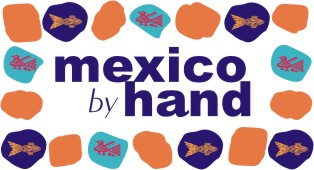Breaking news from Los Cabos, Mexico! I recently saw a story from the Cabo Sun Times that begins: "As you stroll along the sun-drenched Cabo San Lucas marina, it’s easy to get lost in a sea of colorful trinkets. But beneath the vibrant displays of sombreros, blankets, and painted skulls lies a growing issue that savvy travelers need to be aware of: __________."
Okay readers-- what do you think it is?? Drugs? Cheap adulterated tequila? I myself was anxious to know what lies beneath the sombreros... Here it is:
"...a huge number of these souvenirs are not authentic Mexican handicrafts, but cheap, mass-produced imports. What???They're saying these skulls aren't made in Mexico?
 The article states correctly that it isn’t just about the economical impact cheap Chinese imports have on Mexican artists but "it’s about the integrity of your travel experience. A souvenir should be a tangible piece of your adventure, a connection to the place and its people. When that item is a generic factory product, the connection is lost."
The article states correctly that it isn’t just about the economical impact cheap Chinese imports have on Mexican artists but "it’s about the integrity of your travel experience. A souvenir should be a tangible piece of your adventure, a connection to the place and its people. When that item is a generic factory product, the connection is lost."
The writer offers some helpful tips for spotting authentic crafts:
Look for Imperfections: Handmade items have character. Slight variations in a brushstroke or stitch are signs of authenticity, not flaws. Factory-made items are perfectly uniform.
Ask Questions: A real artisan or a passionate shop owner will love telling you about their craft. If the vendor is vague or doesn’t know where an item came from, it’s a major red flag.
Check the Price: Be wary of prices that seem too low. The price of a handcrafted item reflects the time, skill, and quality materials that went into it.
Amen to that! We were happy to see this, however I need to point out that most of the handmade Mexican artesania that travelers see in major tourist spots like Los Cabos, Cancun, and even San Miguel de Allende is not made by local artists. It is often made in another Mexican state like Michoacán where the catrinas in the photo below are from...in the town of Capula to be exact. The vendors or shop employees often don't know much about what they're selling, and then you won't either.

This is also true for many shops in the U.S. and online. The big ones like Ebay, Etsy, and Amazon often have little or even misleading information about the pieces they post there. Keywords are sometimes included in a listing that have absolutely no relation to the item they're selling, and no one can stop them from doing it.
The writer also advises visitors to "look for shops with a diverse and unique collection. By making a conscious choice to seek out authentic goods, you’re not just buying a souvenir; you’re investing in the culture and supporting local families."
If you can't travel to Mexico as often as you'd like-- you can come pretty close to it by shopping with Mexico By Hand! We do our best to share information about the artists and communities that produce our unique offerings, and help you support families and the culture through your purchases.
Thank you for your continued support!
Peggy
